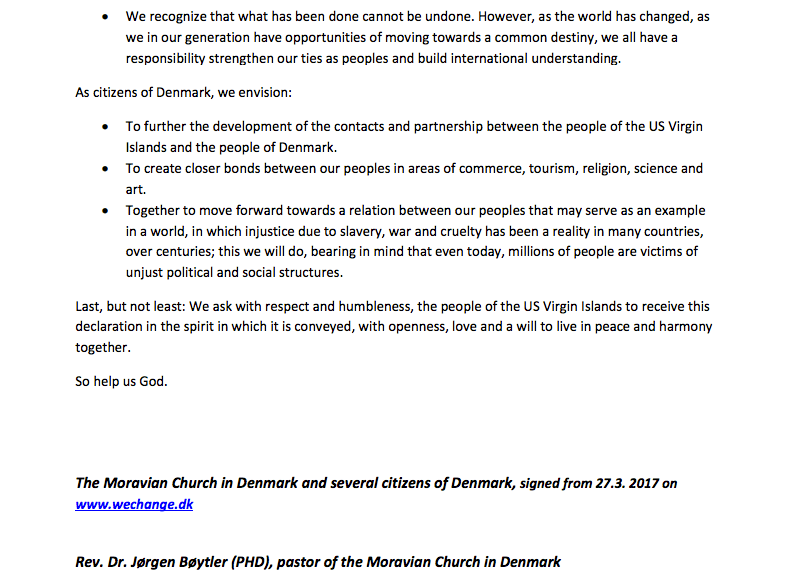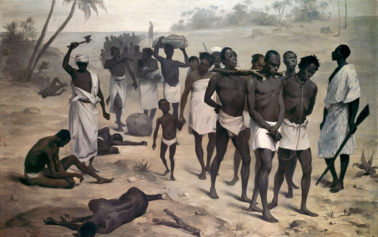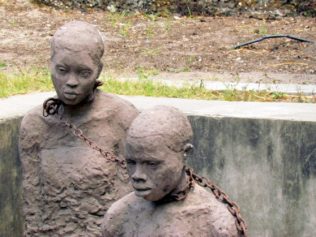
St. Croix Sugar Mill
The Moravian Church in Denmark and several Danish citizens have released a statement apologizing for the atrocities of slavery in the Virgin Islands, as its former territory reflects on the Transfer Centennial and 100 years under the American flag.
“Together with several other citizens of Denmark, we declare to be troubled about a deeply regrettable past in which the forefathers of the population on the U.S. Virgin Islands were enslaved and against their will were forced to labor for masters, many of whom came from Denmark. For this, although belated, we apologize in the spirit of love,” Rev. Dr. Jørgen Bøytler, pastor of the Moravian Church in Denmark, stated in the one-page statement. “The amount of human sorrow, pain and despair caused by the slavery cannot be imagined. The lack of respect of the human dignity of the people, who against their will were enslaved, is not comprehensible for us today. The injustice caused by our forefathers to the forefathers of the population of the islands is inexcusable.”
The statement, expected to be signed by church officials and private Danish citizens during worship services in Denmark on Sunday, was received by Senate President Myron D. Jackson and distributed to Moravian churches throughout the territory by Memorial Moravian pastor Dr. Winelle Kirton-Roberts. Those churches are expected to present it to their congregations. Jackson will read the apology at the Memorial Moravian Church on St. Thomas in a special Centennial Service at 8:45 a.m. on Sunday.
“The moral compass has been set straight by the Moravian Church’s apology to the people of the Virgin Islands for the role that Denmark played in the transatlantic slave trade as well as in the institution of slavery,” Jackson said. “I think it is appropriate that this apology comes on the eve of the 100th anniversary of the Transfer. I commend the Moravian Church in Denmark for taking a bold step in this apology. Its message will resonate throughout our region and the world because it is the right step towards healing and reconciliation.”
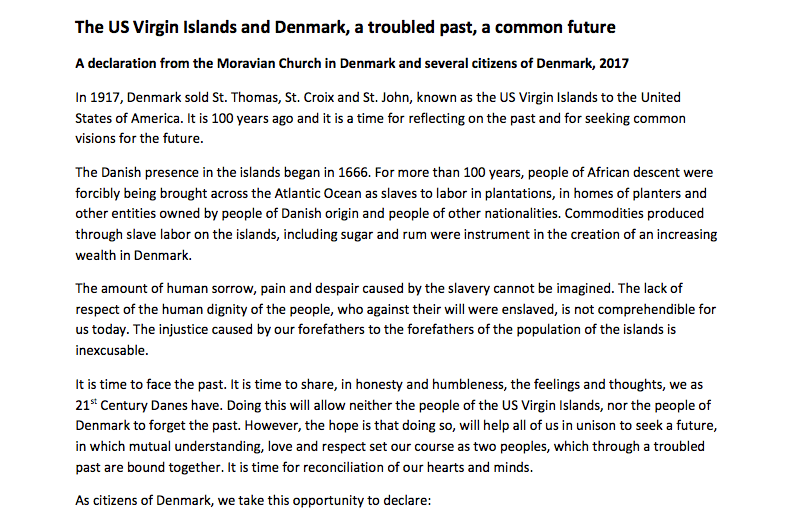
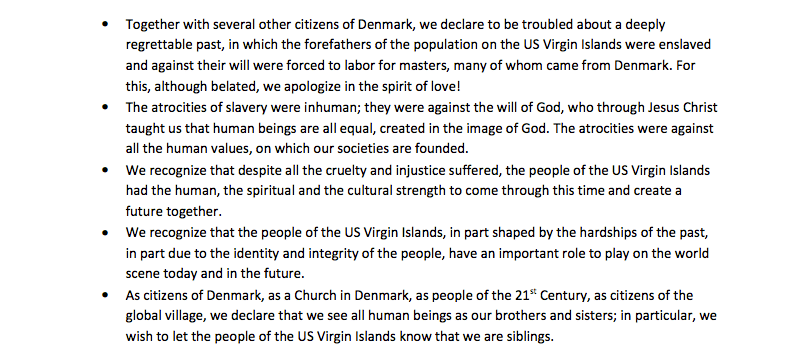
Read more here
